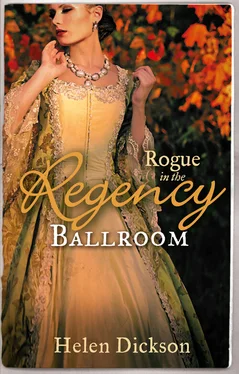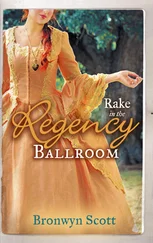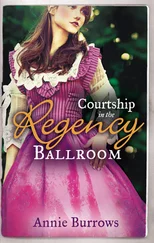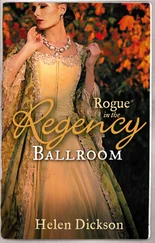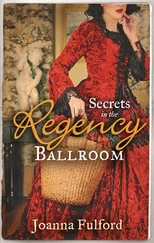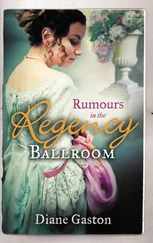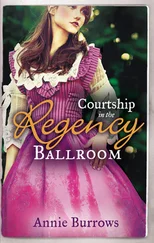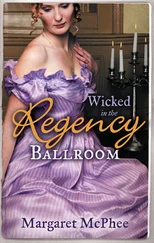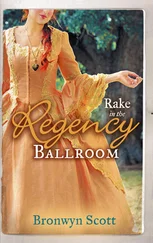‘No. When we left Charleston the—the execution had not been carried out, and I have heard nothing since. I—asked some friends of his—Agatha and her husband—to write to you, to let you know when …’
Victoria swallowed hard, trying to contain her grief. ‘Thank you. Do—do you think he did it?’
‘No, I don’t—and I’m not alone in that. Unfortunately, proving his innocence is another matter. There isn’t a whisper of proof to support his side of things. The one man able to bear him witness has disappeared.’
‘How can I tell Sky that she’ll never see her papa again, that he’s dead? I won’t say anything to her—until I know more. Poor Kit. He didn’t deserve this. If he is dead, then may he rest in peace, and, wherever he is, let him be assured that I shall do my best in raising his daughter, that she will be like one of my own.’
Amanda hadn’t stayed long after that. She had been deeply anxious about her meeting with Victoria Hardy and how Sky would react when the time came for them to part, but now she had met Kit’s cousin she realised that there had been no need. Sky had taken to her at once, and the fact that her new cousin had two children would help her settle in. In fact, when Amanda had left, the two little girls had been playing happily together in the nursery.
And now, on the train heading north, thinking of Kit—about how angry and unhappy he must have been, worrying about how his daughter would be taken care of—she asked herself if there was anything more she could have done, and finally decided that there was not. She had done everything he had asked of her and now she must put it behind her. It was over and she must look to the future. A year of widowhood would soon pass and then she could do exactly as she pleased. She looked out of the window, watching the landscape fly past, and wondered why her heart felt so heavy and why she should feel so despondent when she had finally got what she wanted.
It was because now she could see that what she had done had been no more than a spoiled desire to thwart and outwit her father. What a fool I’ve been, she thought bitterly. And now I’ve got to pay for it. She’d wanted a temporary husband; now that he was dead, she was filled with remorse over the manner of it, and to add to that she missed Sky more than she could have imagined.
She looked at Nan dozing across from her. She, too, was sad to be parted from Sky. The little girl’s constant chatter and laughter had lightened the voyage. As for Mr Quinn, who also had his eyes closed, he had hardly uttered a word since leaving London, and no amount of casual banter seemed to be able to break his grim mood, so Amanda had given up.
At last they reached their destination—Sheffield. Amanda saw that her father had sent his coach to meet them. She climbed in with Nan while Mr Quinn and the driver saw to the luggage. It was a brilliant summer’s day, when the hedgerows were full. Travelling the six miles to Eden Park, after leaving the industrial city behind, Amanda watched the countryside unfold in a rich patchwork of field and meadow and undulating moor land.
Her thoughts turned to her father, to how much she had missed him and how impatient she was to be reunited. Henry O’Connell was the son of an Irish navvy who had come from Ireland to work on the Liverpool and Manchester railway. When Henry had been old enough to join him, he had soon seen that navvying wasn’t for him and he’d struck out on his own, starting at the bottom. After that all directions led upwards. Driven to succeed, money became everything to him—it made everything possible and his driving energies and ambitions had made him one of the richest men in England.
Amanda was proud of all he had achieved. They had always been close, and the only stumbling block in their relationship was the issue of her marriage. He had planned great things for his only child. Wealth, power and social prestige would be hers. But, as he had soon discovered, it took more than money to gain entry to the exclusive inner world of Victorian respectability. He was not a boastful man and rarely offended anybody, but the fact remained that he was a parvenu. In his early days he had not been accepted in established society, but his burgeoning wealth gradually became so prodigious that it overwhelmed class.
After leaving the village of Thurlow behind and skirting the edge of a lake, the coach approached a long drive of limes. Eden Park loomed ever closer. Seeing the house, Amanda blinked her eyes, staring. On that first encounter she was touched by the opulent splendour.
Eden Park was an architectural gem on the edge of the Derbyshire moors. It stood in four hundred acres, thirty of which were given over to gently undulating parkland and beautiful terraced gardens—with short, velvety green lawns, clipped yew hedges, statues and fountains—the rest to the home farm. To the west the land rose steeply to the Derbyshire peaks, and eastward was Sherwood Forest and all its legendary tales of Robin Hood. Over the Derbyshire hills lay the sprawling metropolis of Manchester, which was where Amanda had lived all her life.
Her father must have been watching out for her because, the moment the carriage came to a halt, he came hurrying down the steps with a restless vitality, beaming broadly and as fast as his short, barrel-chested frame allowed. Despite having a brilliant head for business there was something coarse and earthy about Henry O’Connell that most people found appealing, especially Amanda—although she did not realise that this was because she possessed some of those same qualities, despite twenty years of effort on the part of her nanny and governess to eradicate them.
With a happy smile and carrying her veiled black bonnet, Amanda hurried to meet him, throwing her arms about his neck and hugging him, the smell of brandy and cigars on his warm breath fanning her cheeks.
‘Here, now, let me look at you,’ he said, holding her at arm’s length and examining her face with his piercing grey eyes. ‘Aye, you’ve grown lovelier than ever. You get more like your mother every day. You’ve enjoyed your year in Charleston—Quinn kept me informed. Though you made a spectacle of yourself on occasion, you’ve done nothing to bring shame on us. But why did you go all the way to Southampton? Why not Liverpool?’
Amanda laughed awkwardly, unable to look him in the eyes as she avoided mentioning the real reason that had taken her to London. ‘I—I wanted to spend a few days in London, do some quality shopping—you know how it is with us females, Father.’
‘Aye, I do that. Spent more of my money, I don’t doubt,’ he said, tweaking her cheek with mock reproach, ‘but to my mind there’s nothing wrong with the shops in Manchester.’
Amanda laughed lightly. ‘Since you know absolutely nothing about ladies’ fashions, Father, that is exactly the sort of remark I would expect from you.’
‘And where were all the letters you promised to write? No doubt your head was too full of nonsensical matters and you were too occupied to read letters from your old da that you considered to be monstrously dull, eh?’ he reproached her good humouredly, his eyes all of a twinkle.
Amanda laughed, looking fondly at his round face with its ruddy features and his mutton-chop whiskers, which, like his hair, were vividly white. ‘You’re not old and I did read them—I just never got round to writing back as often as I should, that’s all.’
‘’Tis sorry I am to hear about Lucy, and ’tis sad I am that I never got to see her before she died,’ he said on a more sombre note, the brogue of his native Ireland still heavy on his tongue despite his thirty years in England. ‘But what’s this?’ Detecting an air of dejection about his daughter, he tipped her chin and peered sharply into her face. ‘Where’s the sparkle I remember in those bonny green eyes, eh—and when did you take to wearing black?’ he remarked, eyeing her sombre garb with distaste.
Читать дальше
